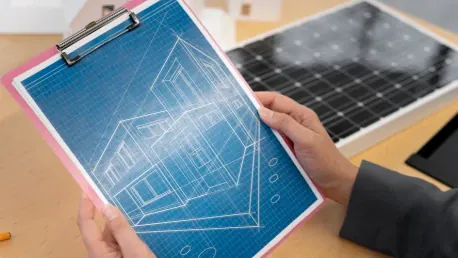Dubai, a city renowned for its opulent lifestyle and luxurious skyline, has embarked on a bold new endeavor to become a global leader in renewable energy. This ambitious transformation is driven by the Dubai Clean Energy Strategy, initiated by Sheikh Mohammed bin Rashid Al Maktoum in 2015, aiming to shift the city from a fossil fuel-based economy to a renewable energy powerhouse. Targeting 75% of the city’s electricity from solar energy by 2050, with the remaining 25% from other clean technologies, Dubai intends to become the city with the lowest carbon footprint globally.
The Mohammed bin Rashid Al Maktoum Solar Park
An Overview of the Solar Park’s Creation
The most iconic element of Dubai’s renewable energy strategy is the Mohammed bin Rashid Al Maktoum Solar Park, situated 50 kilometers from the city. This grand project, one of the world’s largest solar power initiatives, is unfolding in five meticulously planned phases. Initiated in 2013 with an initial output of 13 megawatts (MW), the park soon expanded to harness greater capacity. By 2017, the second phase added another 200 MW to the grid, signifying Dubai’s serious commitment to green energy.
As the project progressed, the third phase, completed in 2020, saw a dramatic increase with an additional 800 MW capacity. This expansion marked a critical milestone in Dubai’s ongoing efforts to incorporate renewable energy on a massive scale. The subsequent fourth phase added 917 MW to the park’s capacity, showcasing Dubai’s evolving strategy that integrates diverse solar technologies. These advancements demonstrate a comprehensive approach to tackling carbon emissions and embracing sustainable energy solutions.
Challenges and Milestones in Development
The establishment of the Mohammed bin Rashid Al Maktoum Solar Park has not been without its challenges. The harsh desert environment posed significant hurdles in terms of equipment durability and efficiency. Extreme heat and dust necessitated the development of robust maintenance protocols to ensure the solar panels operated at peak efficiency. Despite these obstacles, the project’s milestones reflect remarkable perseverance and technological innovation.
When fully operational, the solar park is set to generate a staggering 5,000 MW of power. This output is sufficient to provide electricity to millions of homes, significantly reducing the city’s reliance on fossil fuels. Moreover, the reduced carbon emissions from this large-scale adoption of solar energy will play a pivotal role in mitigating the effects of climate change. Dubai’s progress thus serves as an inspiring blueprint for other nations aiming to transition to renewable energy sources.
Global Implications and Future Prospects
Dubai’s Influence on Global Renewable Energy Initiatives
Dubai’s impressive strides in renewable energy, especially given its background as an oil-rich emirate, send a powerful message to the global community. The urgency of the climate crisis demands immediate and decisive action, and Dubai’s example illustrates that transitioning to sustainable energy sources is both feasible and essential. This transformation underscores the critical role of governments and corporations worldwide in addressing environmental challenges.
The article posits that such large-scale renewable energy projects are not only viable but necessary. By allocating significant investments toward clean technologies, Dubai has demonstrated that developing economies can adopt renewable energy on a vast scale. This bold shift in strategy serves as a testament to the viability of similar initiatives in other regions. For countries grappling with energy demands and environmental concerns, Dubai’s successful model offers valuable insights and inspiration.
The Call for Global Action
In light of Dubai’s commitment to renewable energy, the article calls for a similar dedication from global governments and corporations. Investing in renewables and phasing out fossil fuels is no longer a choice but a necessity. The climate crisis has reached a tipping point, and the responsibility lies with global leaders to foster sustainable growth. Emulating Dubai’s proactive measures can significantly impact the global effort to combat climate change.
Moreover, the article highlights the need for international cooperation and investment in clean technologies. Only through collaborative efforts can the world achieve the scale of change required to address environmental issues effectively. Dubai’s journey serves as a powerful reminder that the transition to a clean energy future is within reach, provided there is a collective will and concerted action.
Conclusion
Dubai, a city widely recognized for its lavish lifestyle and extravagant skyline, has embarked on an ambitious journey to establish itself as a global leader in renewable energy. This bold transformation is anchored in the Dubai Clean Energy Strategy, launched by Sheikh Mohammed bin Rashid Al Maktoum in 2015. The strategy’s objective is to transition Dubai from reliance on fossil fuels to becoming a renewable energy powerhouse. By 2050, Dubai aims to source 75% of its electricity from solar energy, while the remaining 25% will come from other clean technologies. This move not only showcases Dubai’s commitment to sustainability but also positions it to potentially have the lowest carbon footprint in the world. The strategy is a testament to Dubai’s forward-thinking approach and its desire to set new benchmarks in environmental responsibility. Through these efforts, Dubai aspires to lead the way in clean energy, setting an example for cities globally.









